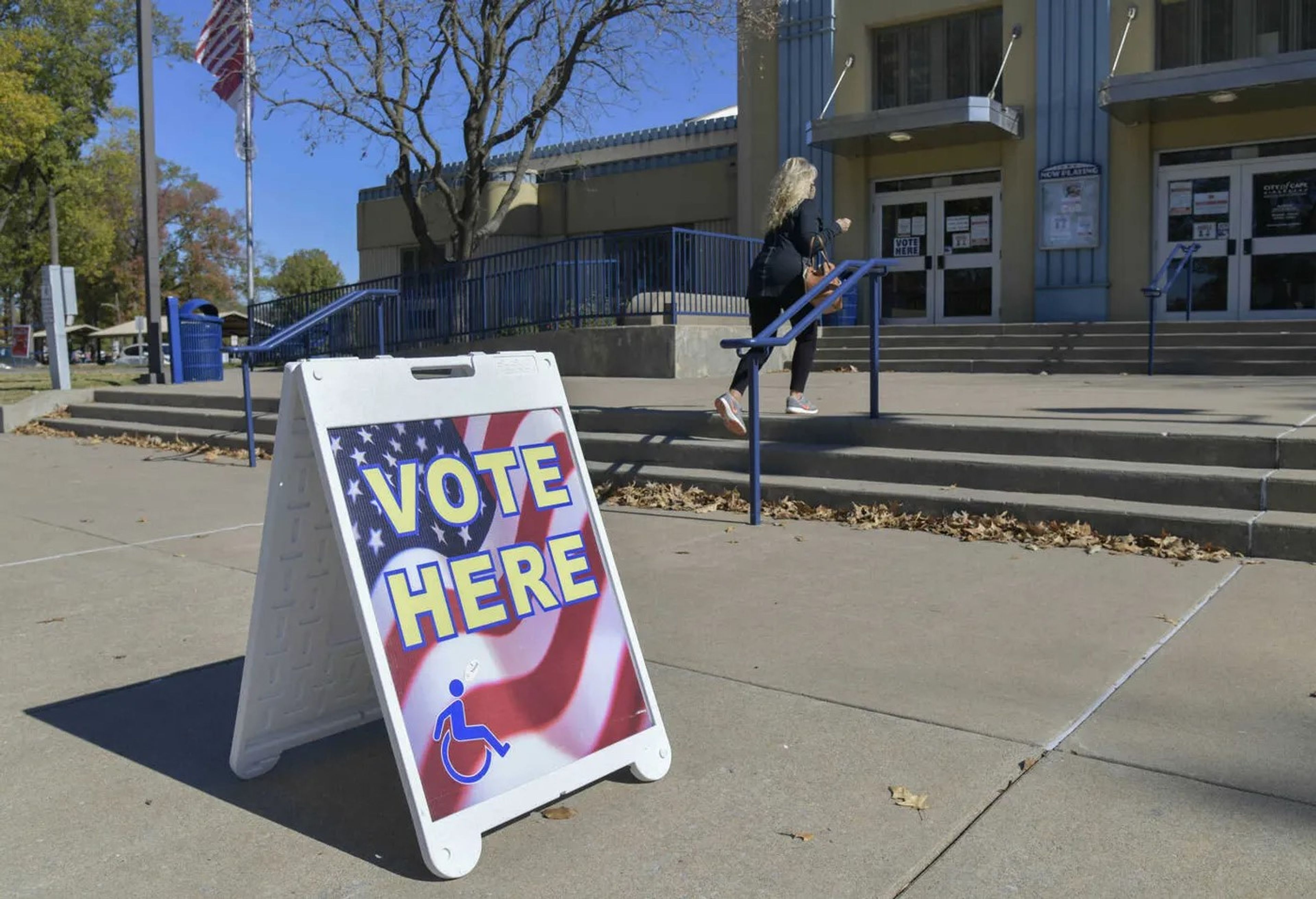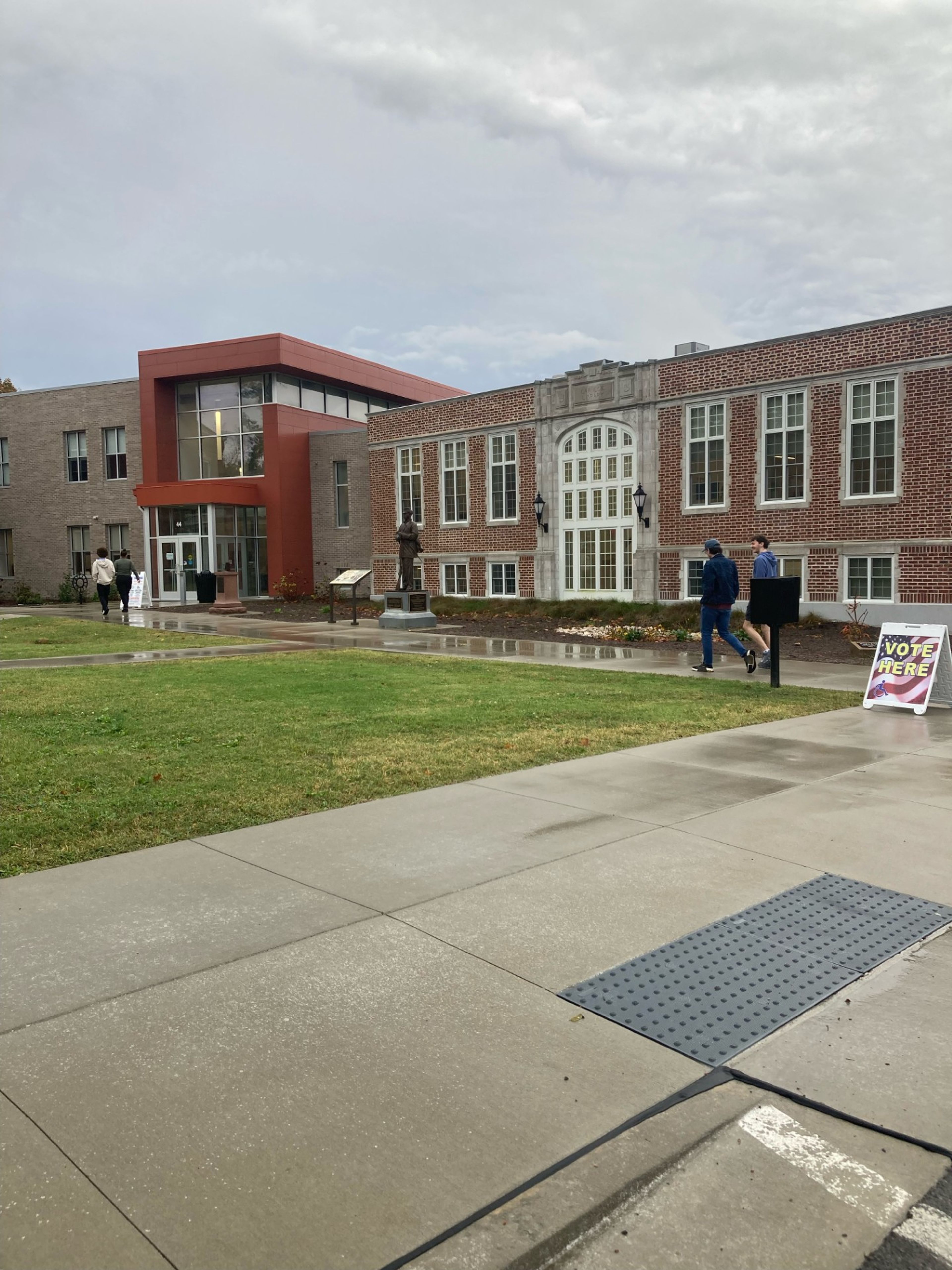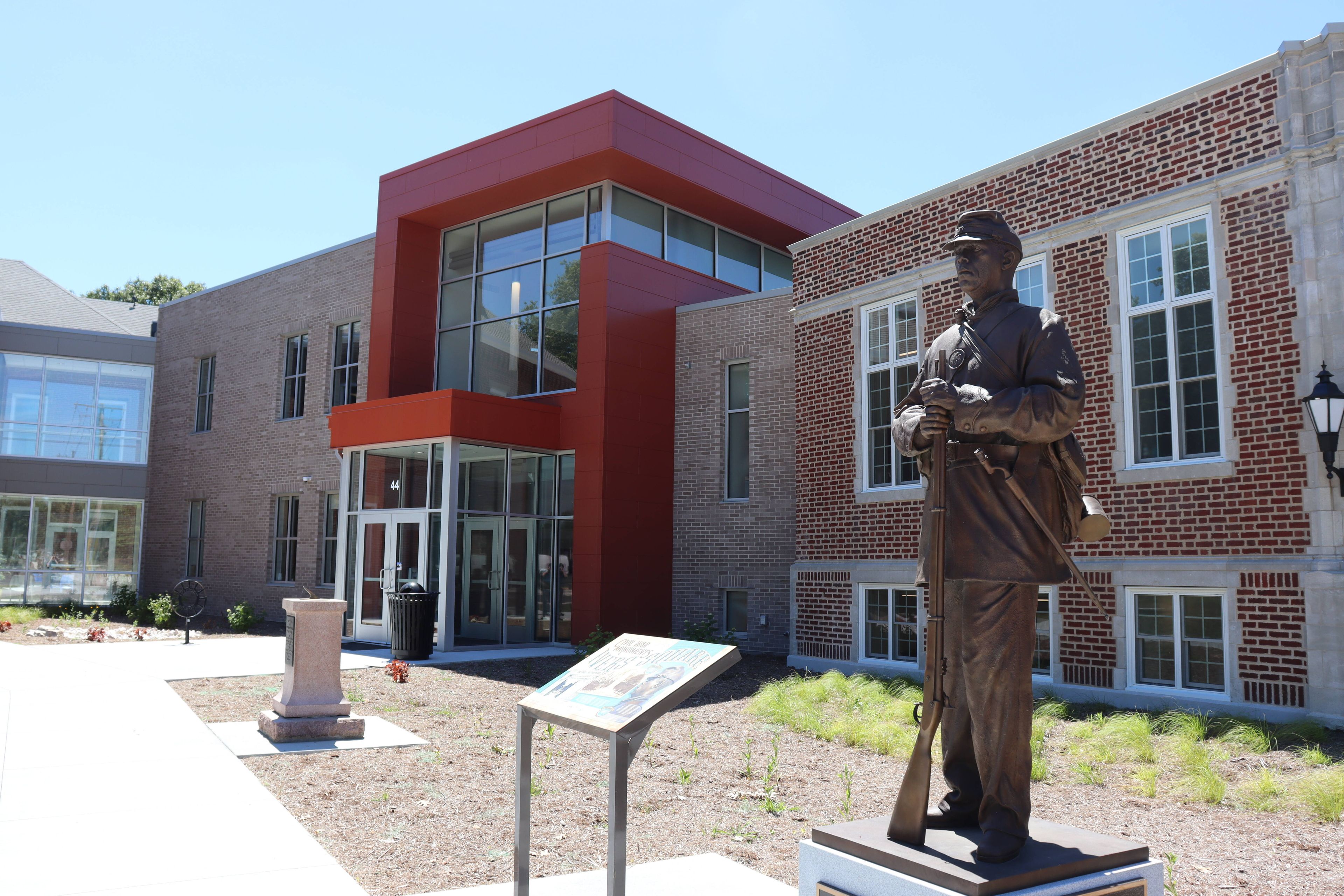Cape County House candidates speak on agendas
District 146 House of Representatives candidates Lucas Green and incumbent Rep. Barry Hovis spoke about their respective campaigns during the Cape Girardeau County Republican Women's Club meeting Friday at Delmonico's in Jackson.
District 146 House of Representatives candidates Lucas Green and incumbent Rep. Barry Hovis spoke about their respective campaigns during the Cape Girardeau County Republican Women's Club meeting Friday at Delmonico's in Jackson.
As a first-time candidate, Green was thorough with his agenda, explaining his ideas on subjects such as abortion, technological advancement and a "digital transformation of government", child care, education and veterans issues. On the other hand, Hovis leaned on his experience and touted his past and present accomplishments in government.

__Abortion__
Green emphasized the need to get young voters on the same page regarding abortion laws in the state with the potential of abortion rights being on the ballot in November, and pointed at current legislators' failure to engage with them in digital settings. In addition, Green suggested prenatal hospice for pregnant women to continue their pregnancy when the fetus is likely to die before birth or shortly after.
"The dynamics of this fight have shifted," Green said. "Younger generations, including otherwise conservative individuals, are engaging in very nuanced debates online about ethical and societal aspects of abortion. These discussions span from individual responsibility all the way to arguments about roles and citizen's rights. Many of the arguments and speeches so far that are made by our state politicians and leaders fall way short of the arguments to get these otherwise conservative individuals to vote pro-life.
"Right now, the pro-life movement requires leaders who will engage on both social media and personally with younger voters in public forums, and to have sophisticated and sometimes very detailed abortion arguments. It's intimidating and it's risky, but the unborn are worth it now. Not next year, not in two years, they're worth it today."
Hovis spoke little on the topic of abortion other than to say he is pro-life and has sponsored a bill that would prohibit public funding of abortion facilities.
"I'm a very big pro-life person," Hovis said. "I know sometimes people will gauge us on how pro-life you are or not, but I'll go over some legislation I've co-sponsored and my votes in the past."
__Crime__
Hovis, whose background is in law enforcement, also touched on a bill he sponsored this legislative session that would modify provisions relating to minimum prison terms.
"In my time in law enforcement, we were sending people off, people that I would arrest who were dealing drugs or whatever, and I'd see them back in the community in five or six months," Hovis said. "Then we would pick, sometimes, to go federal on some of these, because at the federal level, if you have a ten-year sentence, you serve 80% of your time. So if I had somebody who's dealing drugs, and they're shooting one another and stuff like that, we figured out that we couldn't get witnesses to testify against them. Sometimes we'd put federal charges on them so that we would know they would be gone for a while and not continuing that activity.
"At the state level, there were some problems with that because everybody believes in second chances, even if you'd arrest someone and they would go to court over here and they'd be found guilty or they'd plead guilty."
__Education__
Green — who graduated from a public school, and whose wife, Sarah, is a former public school teacher — encouraged reducing the influence of the Department of Elementary and Secondary Education (DESE) and returning control of local public schools to the local boards of education. He also emphasized the importance of students being able to choose what they want to study rather than where to attend school.
"School choice needs to be less about where you study and needs to be more about options on what to study," Green said. "Right now, there's a waiting list for high school students to attend technical schools. CTC does a great job, but the demand far exceeds the supply, and it's time to consider as many options as we can. These could include apprenticeships, work programs or even newer innovative ideas to make the education a person receives match the profession and the contributions of society they are choosing to make."
During his allotted time, Hovis explained his current frustration with an omnibus bill on education.
"I am a supporter of all education," Hovis said. "Now, sometimes the public schools will call me and say, "Do not vote for this bill and do not vote for this bill because it's going to take money away from public education. Then I've got the charter schools. They'll call and say, 'Well, don't leave us out. We're filling an important role in that.' Then you've got your parochial and your private, and you've got your homeschoolers, and all of them want one thing or the other. They've taken this one omnibus bill, and they've thrown all of that stuff together into one hoping that everybody will vote for it and hoping they'll get the two or three things they want. Right now, I've told people and I'll share it down here, I'm going to vote 'no' on that bill."
__Technological improvements__
One thing Green and Hovis agreed on was improving the technology in government. Green — who spent 15 years working in tech development, management and leadership — emphasized the importance of safeguarding citizens' privacy and explained that Missouri is behind other states regarding the state government's current technology.
"Regrettably, Missouri is way behind the other states," Green said. "I would routinely attend national conferences, and Missouri might be one of the few states that has not implemented a certain technology. Even Rep. (John) Voss mentioned this in a previous meeting as being a big problem he's trying to address through the purchasing and procurement of systems."
Hovis echoed Green's sentiment, describing a particular situation where new tech would have helped avoid a major issue.
"We just had an issue with one of the one of the sections that I chair over, and we lost some information because of some outdated computers," Hovis said. "Now, we have it in the budget to replace those. But what they've been doing up there currently, when I spoke with House research on this and on the Senate research side is that as it breaks, they're fixing it, because we don't have enough money to put all the new systems in right now."
Connect with the Southeast Missourian Newsroom:
For corrections to this story or other insights for the editor, click here. To submit a letter to the editor, click here. To learn about the Southeast Missourian’s AI Policy, click here.











